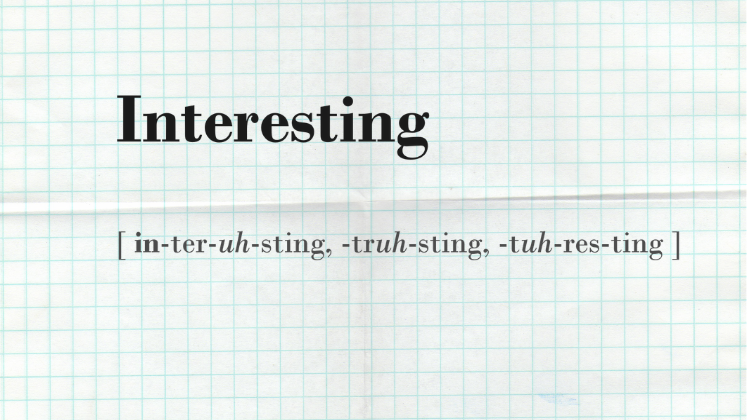For many academics currently working from home, writing will be a secondary consideration, or even impossible. However, for others writing can be an essential way to maintain a sense of stability and to meaningfully respond to the current situation. For certain kinds of research academic writing may now even be more vital than ever. For those looking to write, Chris Smith discusses how to manage distraction and presents five strategies for maintaining focus, whilst at the same time acknowledging that sometimes the best thing to do is to just stop.
These are extraordinary times and if you’re unable to write, the simple answer is to stop, give yourself a break and attend to what matters most in your life.
Saying that, I work with academic writers every day and I know many want to write – out of necessity, or because it can bring a sense of normality in testing times – but are finding it hard to stay focused. And who can blame them…
The way to cope with distractions isn’t to fight them, or ignore them, but to understand how to respond to them. You can’t always control how you get distracted, but there are steps you can take to feel more in control of how you respond when they do occur.
If you want to write, you can minimise the impact your distractions have if you’re prepared. With this in mind, here are five strategies that can help you keep focus in turbulent times:
1. Keep a distraction diary
When you don’t know how you get distracted, or where your interruptions come from, you’ll struggle to manage them. It’s time to take control. The first step is to note down your distractions as they occur. Think of it as a distraction diary.
Your distractions will have multiple forms and some will be more disrupting than others. Track the distractions you face from both the inside and from the outside.
The way to cope with distractions isn’t to fight them, or ignore them, but to understand how to respond to them.
For example, you might notice internal distractions like anxious thoughts, procrastination or self-doubt. You might also notice experiencing external distractions like your phone, email, the news. In addition, many writers will have family and community responsibilities at this time – commitments that deserve your full and undivided attention.
Observe, the distractions you experience, note down and don’t judge. Now’s not the time to dwell on these distractions or feel frustrated by them. Accept that they happen and record them as they occur, as a scientist would make observations in a lab.
2. Practice obstacle thinking (and prepare a battle plan)
Now you know more about the nature of your distractions you’re already better prepared to avoid them. The next stage is to visualise what action you’ll take when you meet these distractions and obstacles in your day.
Thinking about what gets in the way of the writing you might want to do – your obstacles – can feel quite negative. People often prefer to focus on what they can achieve rather than what stops them. But when you think about the likely blocks and barriers ahead, you’re better placed to navigate them when you meet them. Now you have your diary of distractions, obstacles and blocks, brainstorm the practical steps you can take to manage them when they occur.
Let’s say you’ve noticed that your writing gets impacted (and your anxiety increases) when you get news notifications on your phone. Brainstorm as many preventative measures as you can – these can be fun! Get creative and pick the solutions that are most practical and easy to implement for you.
Could you:
- Leave your phone somewhere else, or even hide it?
- Turn off notifications or turn on airplane mode?
- Switch it off entirely?
- Find alternatives to using your phone for everyday tasks, (hello egg timer)?
- Reserve your scrolling time for a specific time of the day?
- Block the internet entirely?!
3. Get a ‘when-then’ plan
Developing a preventative battle plan is a great step forward but now, you need to embed that behaviour so it becomes more routine-like and everyday. You need a simple strategy and you can get this by implementing a ‘when-then’ plan.
A ‘when-then’ plan is a way to trigger your brain into action, so one activity gets fused to another. It’s an approach rooted in neuroscience and it’s used to help people adopt new positive habits.
It’s a formulation you can use to move round your distractions as they occur. For example:
- When I write, then I’ll leave my phone in another room.
- When my writing time gets co-opted in the morning, then I’ll write for 30 minutes in the evening.
- When I feel unfocused and anxious, then I’ll take a breather for 15 minutes.
The key to ‘when-then’ planning is clarity. Make the action you will take unambiguous so it becomes a simple rule to follow.
4. Use constraints
When you’re in an unfamiliar environment or feel lacking in structure it’s easy to become distracted and derailed from your writing. One way to keep focused is to use constraints of some kind. This is an approach you can incorporate into your when-then planning. Writing constraints work because they apply a little pressure, focus your attention and give you boundaries.
One classic way to add discipline into your day is to use the Pomodoro technique. You set a timer for 25 minutes. Write. Take a five-minute break – repeat. The Pomodoro technique works because it feels achievable, because it gives you structure and because it introduces a sense of urgency into your writing process – and you have a break to look forward to incentivise.
Another way is to write fewer words or for less time. For example, aim to write one paragraph per day then stop. Write for 30 minutes a day and no more. Many writers set the bar too high. It’s far better to write a few words each day than to try and fail to go big.
5. Accept and park anxious thoughts
Not all of your distractions will be external. Many will be internal. At this time, your anxious thoughts might spiral. In general, the concerns you have are either practical or hypothetical in nature.
Practical worries are things you can take an action to resolve now, whereas hypothetical worries are of the ‘what if…?’ variety that are legitimate and understandable, but stressful because they leave you feeling powerless.
If some of the distractions you’ve noticed and noted down are hypothetical – What if X happens? How will I cope if Y occurs – try reserving 20 minutes in your day as your ‘worry time’.
When your worry time arrives, set a timer, go through your worries one by one and ask yourself what practical action you can take to address that worry. If you can take a practical action – do it. If you can’t, cross it off the list.
This approach is about acknowledging that your worries are legitimate and parking them for another time so they don’t derail you in the present.
In summary
Too many writers spend too long feeling guilty that they should be writing. If your distractions and commitments are such that you can’t write – accept this and don’t feel bad. These are troubling times – your writing will always be there.
But if you want to write, try some of these strategies and think about how you can apply the critical thinking you use in your own research, to understand how you respond to your distractions. Because writing can bring much-needed sanity and control in an unpredictable world.
Note: This article gives the views of the author, and not the position of the LSE Impact Blog, nor of the London School of Economics. Please review our comments policy if you have any concerns on posting a comment below
Image Credit: Hearing acuity test in anechoic chamber 1949, via Wikimedia Commons.








